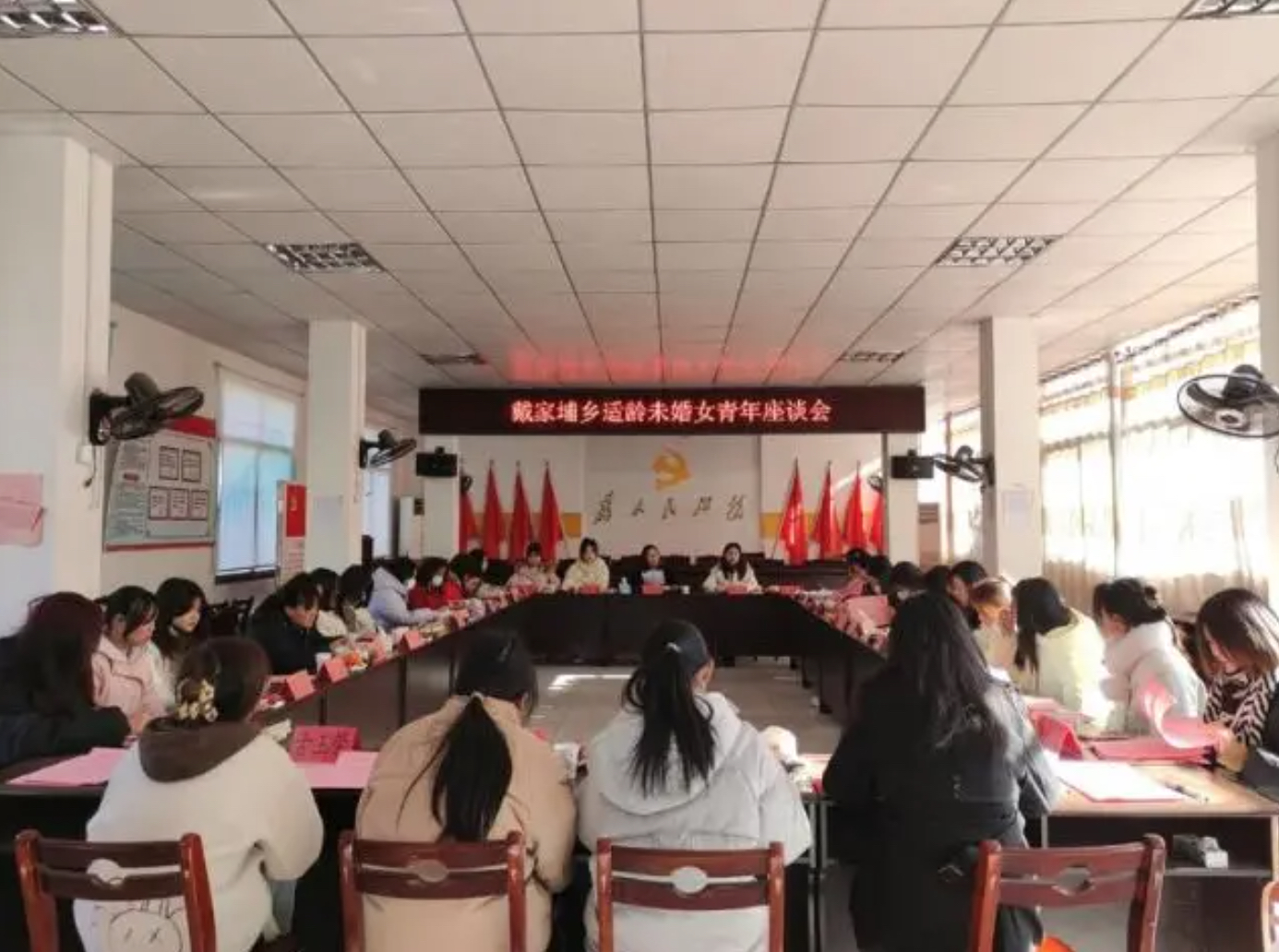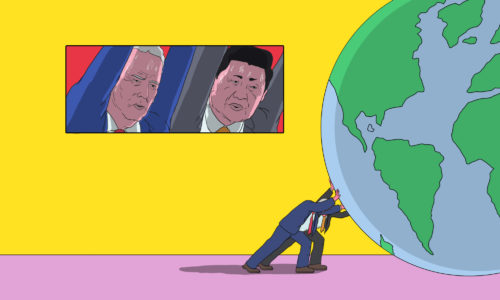In a rural village of China, a new type of role model for modern women has emerged. She’s independent, self-content, and — most importantly — won’t ask for too much money from her husband-to-be.
The criteria was established by local officials of Daijiapu, a village of about 15,000 residents in Suichuan County, in north-central China’s Jiangxi Province. In a government meeting on January 30, a group of 30 single local women were invited to share their thoughts on traditional wedding customs in the region, including the age-old practice of grooms paying their would-be wives’ family a “bride price” (彩礼 cǎilǐ).
China news, weekly.
Sign up for The China Project’s weekly newsletter, our free roundup of the most important China stories.
The tradition was derided as regressive and irrelevant during the discussion, according to a press release issued by the local authorities. The seminar concluded with all the attendees vowing to forgo the convention.

“[The women] signed a collective pledge to not request or accept hefty bride prices and to advocate for a change of customs,” the article reads. “[They will] guide young people in various fields to promote a new kind of civilized lifestyle and adopt core socialist values.”
The event barely created any ripples outside Suichuan, where local media lavished praise on the women who took part in the pledge. But then the news hit the Chinese internet last week, and a wildly different perspective surfaced.
“Nothing substantial will come out of this meaningless meeting”
Rather than hailing the women as role models to look up to, social media users saw them as victims lacking agency under the influence of a powerful government. Many critics pointed out that a bride price is typically agreed on between the groom and his partner’s family, not the bride herself. This means the promise that came out of the government meeting is worthless.
“What’s the point of persuading women to sign the pledge when the decision of whether they want a ‘bride price’ and how much they want is not up to them?,” a Weibo user questioned.
Others took aim at the local government of Sichuan, blasting it for having misplaced priorities. “Nothing substantial will come out of this meaningless meeting. They should have focused on things that could actually improve people’s lives, like persuading local companies to sign a pledge against gender discrimination in hiring and in the workplace,” another Weibo user commented.
“This looks very much like another government-staged show, without understanding the underlying driving forces that have led to the escalating high bride prices in recent decades,” Wang Feng, a sociologist who studies Chinese demography at the University of California at Irvine, told The China Project.
The controversy surrounding the seminar comes on the heels of another bride-price-related scandal in Jiangxi last month. Notorious for its adherence to traditional wedding traditions, the province made headlines in early January after a post on Chinese Quora-like platform Zhihu went viral. The writer of the post shared a story about an ex-girlfriend who demanded a “bride price” of 18.99 million yuan ($2.78 million), which included multiple properties and gifts for hundreds of relatives. Although the article was later found to be fabricated, the debate still brought a significant amount of negative attention to Jiangxi, where, according to a local matchmaker, bride price demands of around 200,000 yuan ($30,000) are not uncommon.
A backward tradition that commodifies marriage or a show of respect that empowers women?
A reverse version of a dowry, the bride price is usually in the form of cash, but sometimes includes a house or other gifts to the bride-to-be’s parents. The custom has been part of the marriage pact in most of China for centuries. And although the communist revolution tried to abolish it, with a 1950 law prohibiting forced marriages and any form of related property exchange, the custom resurged in the Reform Era and has largely remained in place, said Yige Dong, an assistant professor of sociology and gender studies at the State University of New York, Buffalo.
The tradition is not inherently problematic, given that the meaning of the transaction has evolved over time, said Wang, who served as the former director of the Brookings-Tsinghua Center for Public Policy. “In some ways, a bride price is a show of respect and commitment from the groom’s side to the bride’s side,” said Wang. “It is both symbolic and economic. It is an indication of rising women’s status. Unlike the practice in history, when bride price is interpreted as a price to ‘buy’ the bride. Brides cannot be bought now.”
However, in the past decade, the bride price has doubled in some Chinese provinces, pushing marriage financially out of reach, especially for rural bachelors from low-income families. When researching for a paper on factory workers at a Foxconn plant in Zhengzhou, Dong was told by local men last year that for a typical marriage in rural Henan, “the groom’s family is expected to provide a car and a new house or apartment as a form of bride price, which would cost more than 200,000 yuan ($30,000) — but the average household annual cash income from farming is only 5,000 yuan ($743).” One worker interviewed by Dong joked bitterly, “Having two sons is bad luck; it means you have to provide two apartments!”
China has a man surplus and it’s worrisome for the government
It is hard to pinpoint a single driving force behind the swelling cost of caili. One major factor at play is China’s growing wealth and the urbanization of the countryside, which has drastically increased the cost of living for rural families and raised parental expectations of pre-wedding gifts.
“China has been undergoing a historical economic growth process. Both the recent reality of vastly increased income and wealth, and the accompanying expectation, have exacerbated the practice,” said Wang.
Another less obvious cause of the inflated bride prices is China’s substantial demographic imbalance. When Beijing put an end to its long-standing one-child policy in 2005, the country was confronted with a glut of boys — as many families, especially those in the countryside, had preferred to have a son over a daughter. Although China has since continued to relax birth restrictions in order to reverse a trend of population decline, the gender ratio is too lopsided to be corrected in a short amount of time. As of 2021, China was home to a surplus of an estimated 30 million men, approximately equivalent to the entire population of Texas.
The scarcity of women means that potential brides can be choosier. “If we think about marriage as a market, then there are the ‘supply’ and ‘demand’ sides. Given that men have significantly outnumbered women in this ‘market,’ an individual man has to ‘compete’ with their peers to find a female spouse,” Dong told The China Project. She stressed that although the usage of “market language” risks “objectifying women and treating men as commodities,” it’s the easier way to illustrate what dating looks like for modern Chinese men and women nowadays.
Complicating matters is an exodus of women who have moved to urban areas for more job opportunities and better dating prospects. This rural class of potentially angry, frustrated, relatively poor, and uneducated bachelors could be a serious threat to social stability.
“This is something worrisome for the officials, as single men, or the ‘bare sticks’ (光棍儿 guāng gùn’er), have always been a major factor that could destabilize the regime since China’s imperial times,” explained Dong.
The concerns are not unfounded, as the frustration of being shut out of marriage due to financial reasons could result in deadly violence. In 2019, a woman in Jiangxi Province was stabbed to death after she turned down her boyfriend’s marriage proposal over a dispute about caili.
“The government should simply get out of the way”
To address the issue, the Chinese government has instituted a variety of policies aimed at taking the financial pressure off bachelors. In some villages, local authorities have been trying to rein in bride prices by placing a maximum legal limit. Other places have introduced restrictions on wedding ceremonies, capping the number of guests and the value of wedding gifts. In Chongqing, one of China’s biggest municipalities with a large rural exurb, engaged couples are eligible for a government-sponsored group wedding, but the catch is that extravagances — and certain ancient marriage traditions — are strictly forbidden during the ceremony.
But not everyone agrees that the government should tell people what to do when they get married: “Some of this can be due to a real and legitimate concern of high monetary burden for less privileged men and their families, but much of this I suspect comes from an outdated mentality that somehow paying a bride price is an ‘old’ and ‘feudal’ tradition,” Wang said.
Paying a bride price is “purely private and voluntary,” he added:
For many families, this is a gesture to deepen the commitment between families and generations. The government should simply get out of the way. If young people see that buying an apartment or building a house puts too much pressure on the men’s and their family’s side, they will figure out a way.
Government efforts have also focused on single women. To ratchet up the fear of perpetual singledom, officials have coined and propagated the infamous sexist term leftover women (剩女 shèngnǚ), which is used to describe an educated, ambitious female over the age of 27 who is still single. Telling women to lower their standards and be less fixated on wealth is another popular tactic, although it’s regularly called out by internet users for perpetuating an outdated, patriarchal idea that a woman needs a man to be happy.
“As long as our society works on the heteronormative assumptions that everyone should enter a heterosexual marriage at some point in their life, the pressure for every man to find a female spouse will be there. A radically different way to think about intimate relationship and the nature of family would be helpful — but there is a long way to go,” Dong said. “From another angle, measures that could reduce the costs of living and of raising a child would be good. These would include government-subsidized housing, education, and care services.”







